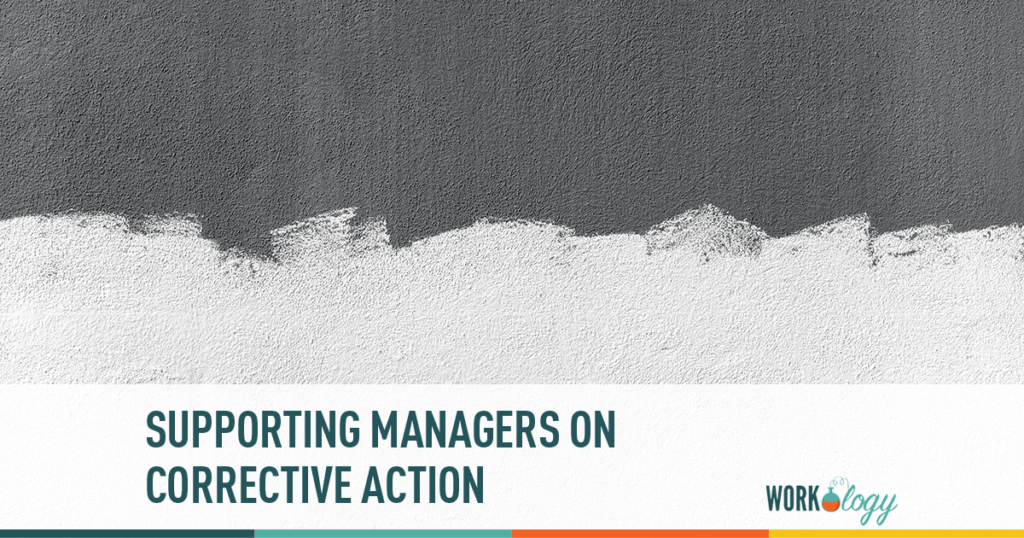How many times have you received a call from a manager wanting to fire an employee? They tell you that they’ve had it. The employee has been late 15 times in the last month. As HR professionals, we are programmed to ask the same questions: Have you written up the employee? Or, do you have any documentation? Unfortunately when the answer to these questions is no, we have to tell the manager that they need to write the employee up first. If your experiences are like mine, this does not usually go over well.
To avoid this kind of situation, the key is to provide managers with adequate training and a clear understanding of the process. In today’s blog post, we will look at a few simple ways to help support your managers on corrective action.
CORRECTIVE ACTION GUIDELINES
Your corrective action process should not be mysterious. There should be a little room for making adjustments if the situation calls for it, but otherwise it should be clear and easy-to-follow. Of course there are unusual situations where guidelines won’t help, but most corrective action situations are fairly common (e.g. customer service issues, attendance problems, poor work performance).
One of the most common corrective action issues I have helped managers with is attendance. Decide what the standard is at your company. How many times does someone need to be late in a pay period before their tardiness becomes an issue? Come up with similar standards for other common issues. How many times does there have to be a customer complaint about an employee before they are written up?
Write up your guidelines for your managers and provide them with warning templates to make creating documentation easy. Having templates available not only makes it easier for managers to write warnings, but it also ensures that you have proper documentation of any corrective action taken.
TRAINING
It is a good idea to couple your written guidelines with training for your managers. Review your company’s process for corrective action, and also take the time to go through the consequences of not properly warning employees of performance issues. Once managers get a better grasp of why we document and give employees several chances to fix an issue, they can be more on board with the process.
Make sure to include examples in your training, and remind managers that they should be on the lookout for things that could be signs of other issues that need to be addressed. For example, if an employee says that the reason for their recent attendance issues is health-related, someone from HR may need to talk to the employee about their FMLA rights or possible accommodations under the ADA.
IN THE END…
Most managers and HR professionals do not like dealing with corrective action. It is much easier to tell an employee they are doing well than it is to say they need to improve. But with clear guidelines and training, you can help make the process smoother for your managers.










Comments are closed.